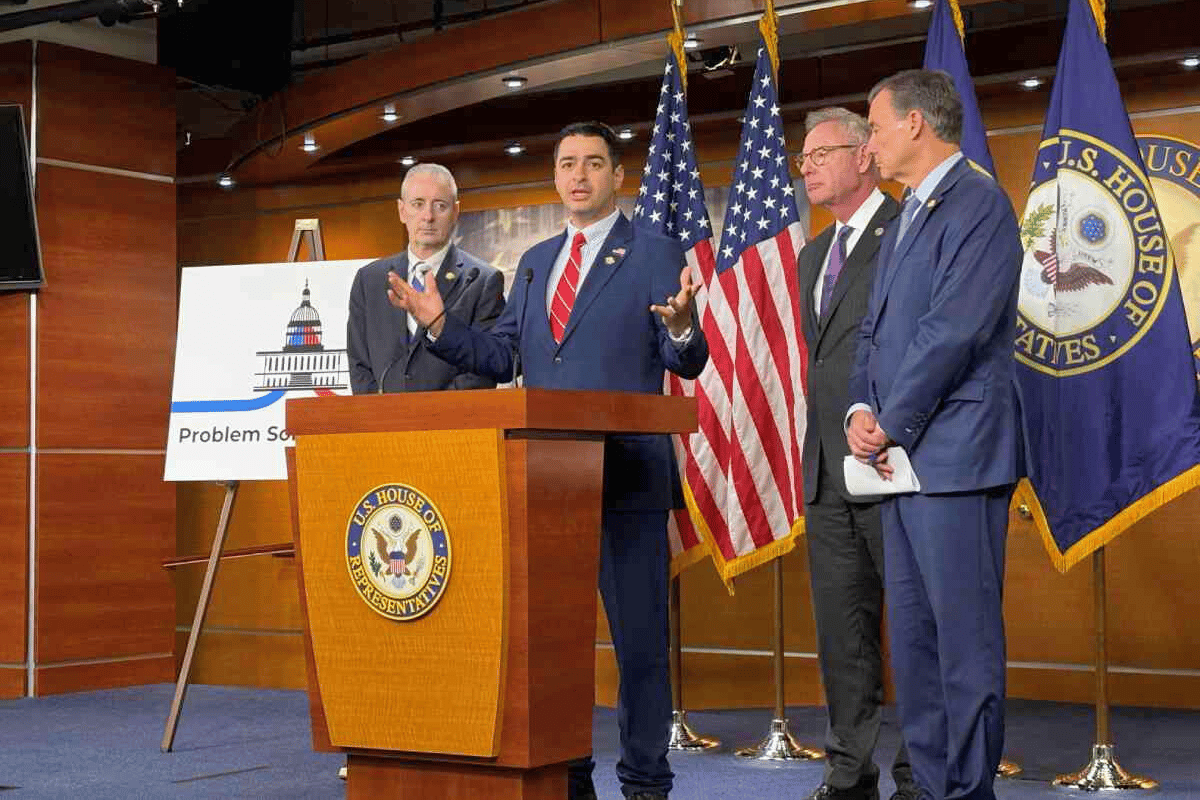
The bipartisan Problem Solvers Caucus is hoping to have lightning strike twice.
The group, which released a framework for infrastructure that eventually became law under the Biden Administration, has released a new policy plan — this time an approach to permitting reform that they think has a chance of getting through Congress.
“One of the things that we've been trying to get rolling in our group is the generation of two-party solutions on some key areas that we think are going to determine the success or failure of our country over the next decade,” said co-chair Rep. Brian Fitzpatrick, a Republican from Pennsylvania. “Energy and permitting reform is at the top of that list.”
Colorado GOP Rep. Gabe Evans co-led the working group that developed the framework with California Rep. Scott Peters.
Evans said they had one goal in mind: to streamline the process to get new energy projects — from fossil fuels to renewables — up and running faster.
“We have to make sure that we can navigate our own regulatory environment to be able to build these things here in the United States with some of the best and most environmentally and socially responsible guidelines, really anywhere on the planet,” said Evans.
The framework includes five key goals, starting with cutting red tape and depoliticizing the permitting process. It also seeks to meet the nation’s fast-growing energy demand, reform NEPA requirements, set clear and enforceable permitting deadlines and strengthen domestic supply chains.
Peters noted that other legislators have been introducing bills aimed at many of these goals, including one from the chair of the House Natural Resources Committee called the SPEED Act, which reforms NEPA. “I think ultimately this probably all comes together as a big package, because everyone wants to make sure they’re covered.”
Evans added that having a framework, as opposed to lawmakers introducing specific bills, allows for “greater flexibility to be able to work with all the different stakeholder groups to make sure that we’re getting that input early, that we’re getting that buy-in earlier on.”
This approach, he added, also helps ensure there is a large coalition to support getting the permitting reform package through Congress, where it will need backing from members in both parties to garner the minimum 60 votes to pass the Senate.
The Problem Solvers Caucus pointed out that the Bipartisan Infrastructure Law started out just like this.
“Started as a framework, then became a bill. Got endorsed by the group, and it was ultimately a bipartisan coalition that got it over the finish line,” said Fitzpatrick. “And our country is better for that bill. We hope this can be following in those footsteps.”
The group has an aggressive timeline. The SPEED Act could hit the House floor by the end of the year and the group is hopeful they can get a package together by then. One bill they mentioned for inclusion in the package, and that meets the guidelines of the framework, is a Senate permitting reform bill introduced in the last Congress by Wyoming Sen. John Barrasso and former West Virginia Sen. Joe Manchin.
Among other things, that bill, the Energy Permitting Reform Act, proposed shortening timelines on litigation for projects, provided two pathways for transmission development and accelerated leasing and permitting decisions for all types of energy projects.
Evans isn’t the only Coloradan participating in Problem Solvers; GOP Rep. Jeff Hurd and Democratic Rep. Brittany Pettersen are members of the caucus.







